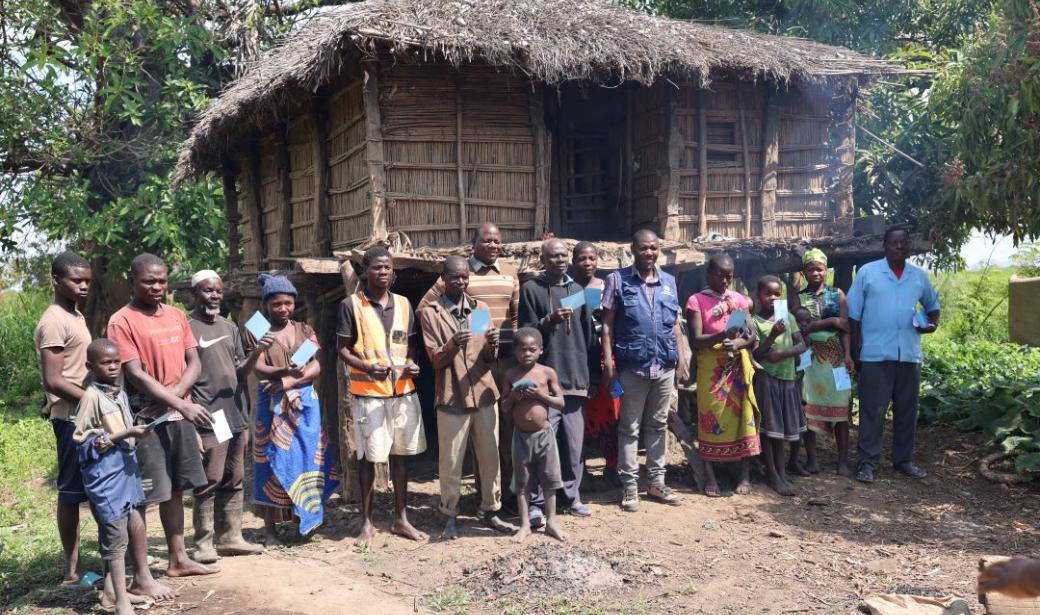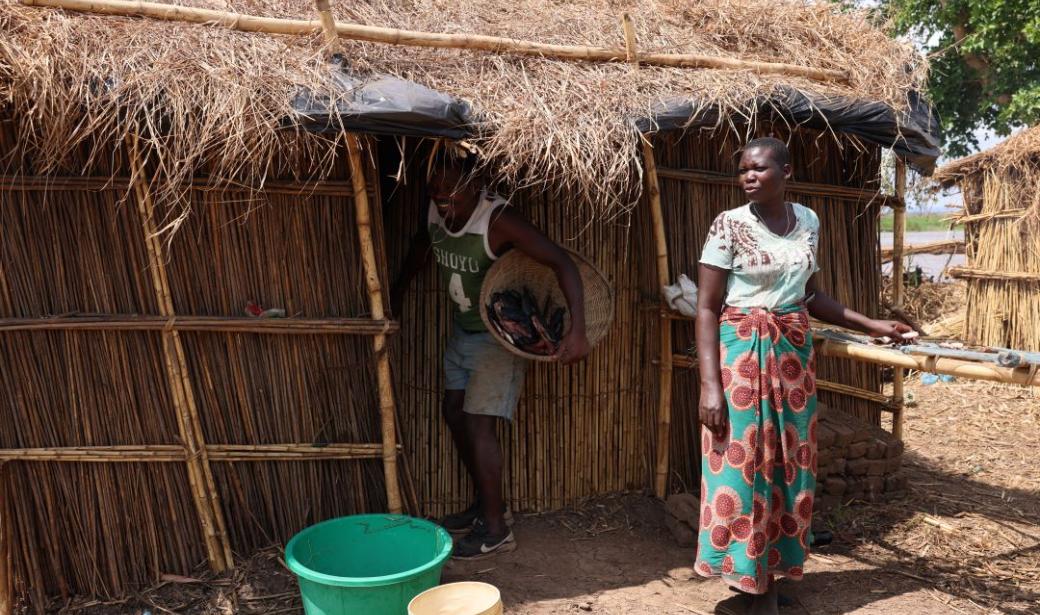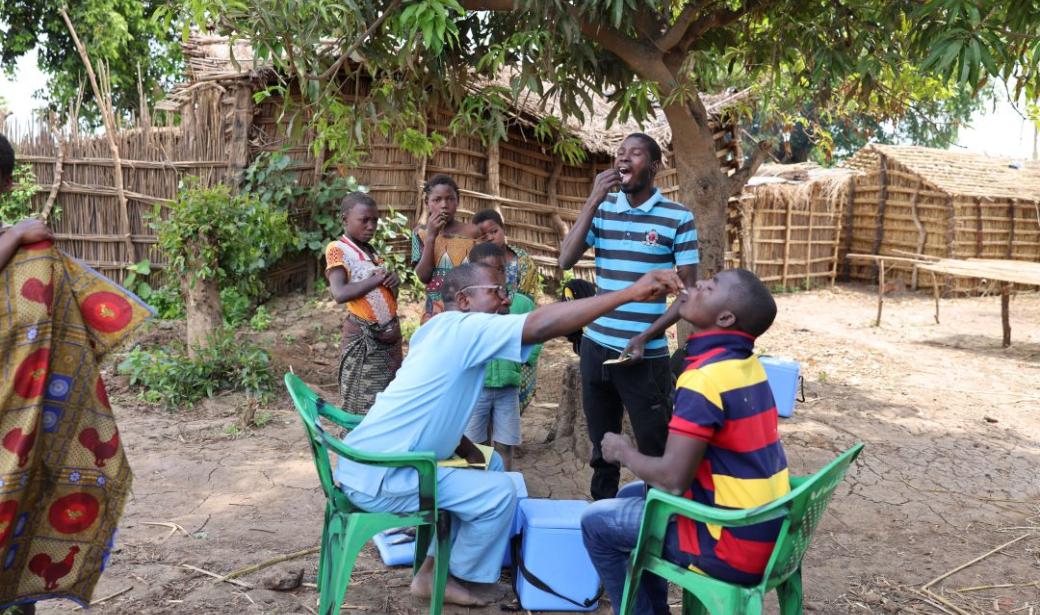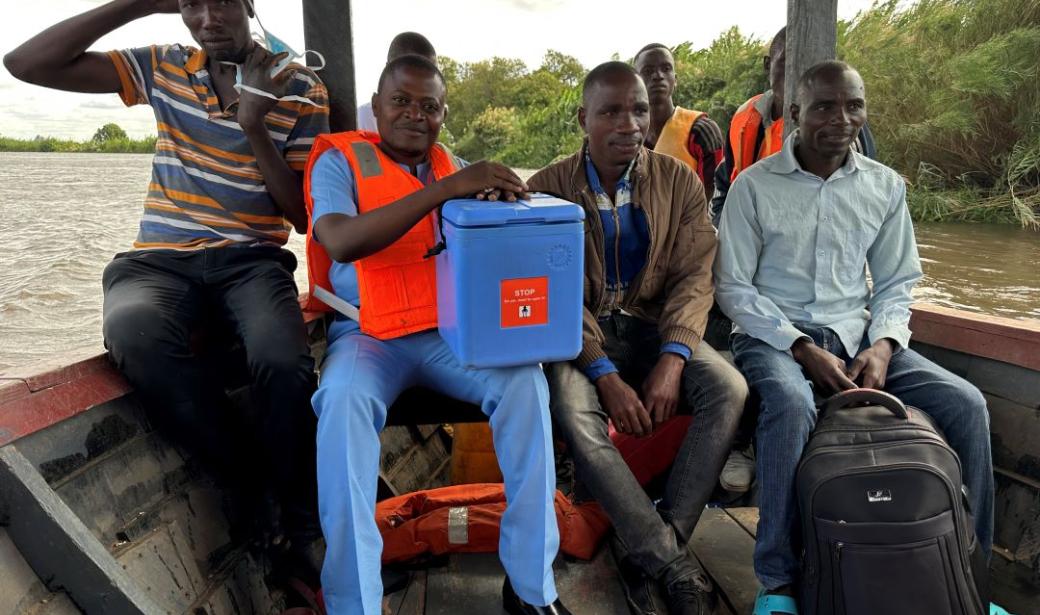Ovixlexla Kamenyagwaza-Bunya
In the southern tip of Malawi, along the Shire and Ruo rivers, bordering Mozambique are the Ndindi marshes of Nsanje. In this picturesque landscape, a resilient community thrives, nestled on the banks of these two rivers.
The wetlands offer exceptionally fertile land, making it a cornerstone of the local economy through fishing and winter farming. This is reflected in their bustling markets, where the fruits of their labor are exchanged between the neighboring communities of Nyachikadza in Malawi and Migaza and Mutarara in Mozambique.
However, the community has been facing significant challenges related to sanitation, with cholera outbreaks being a recurring menace. These outbreaks are primarily attributed to poor hygiene, sanitation practices and cross border sporadic cholera cases.
The wetlands offer exceptionally fertile land, making it a cornerstone of the local economy through fishing and winter farming. This is reflected in their bustling markets, where the fruits of their labor are exchanged between the neighboring communities of Nyachikadza in Malawi and Migaza and Mutarara in Mozambique.
However, the community has been facing significant challenges related to sanitation, with cholera outbreaks being a recurring menace. These outbreaks are primarily attributed to poor hygiene, sanitation practices and cross border sporadic cholera cases.
Ovixlexla Kamenyagwaza-Bunya
Dorica Simoni, is a resident of Mpomba village, situated about 20 kilometers near Migaza. She is receiving the Oral Cholera Vaccine targeted in the hotspot districts of Mangochi, Chikwawa and Nsanje by Ministry of Health, supported by World Health Organisation for the sixth time. She is at pains with the disease. She lost her husband and daughter in the recent cholera outbreak. She sheds light on the struggles faced by the people in this area. Stating the community relies on shallow water wells that lack protection and chlorine treatment due to financial constraints with contamination of pit latrines as the water tables are low.
Dorica explains, "The Health Centre at Ndamera has limited chlorine stocks, and is very far. It is difficult for Health Assistants to reach my village. To protect my family from cholera, we have had to take long journeys through deep waters in crocodile and hippo infested areas to access treatment, chlorine to treat water and cholera vaccines. People died in large numbers in the recent cholera outbreak. My own daughter died in my arms on a boat in transit to Ndamera Health Centre.”
It is an experience she does not want to relive. She credits her village chief for disseminating critical information about the Oral Cholera Vaccination campaign and Health Surveillance Assistants for coming to their doorsteps this time around, a thing she narrates has never happened before.
“The challenges are compounded by the geographical isolation of the area.” George Mbotwa, Health Promotion Officer for Nsanje district, explains the difficulty in reaching out to this region. He says, information dissemination and social mobilization rely on community radios, phone calls to traditional leaders and this time due to WHO support a megaphone was placed on a boat along the river.
Dorica explains, "The Health Centre at Ndamera has limited chlorine stocks, and is very far. It is difficult for Health Assistants to reach my village. To protect my family from cholera, we have had to take long journeys through deep waters in crocodile and hippo infested areas to access treatment, chlorine to treat water and cholera vaccines. People died in large numbers in the recent cholera outbreak. My own daughter died in my arms on a boat in transit to Ndamera Health Centre.”
It is an experience she does not want to relive. She credits her village chief for disseminating critical information about the Oral Cholera Vaccination campaign and Health Surveillance Assistants for coming to their doorsteps this time around, a thing she narrates has never happened before.
“The challenges are compounded by the geographical isolation of the area.” George Mbotwa, Health Promotion Officer for Nsanje district, explains the difficulty in reaching out to this region. He says, information dissemination and social mobilization rely on community radios, phone calls to traditional leaders and this time due to WHO support a megaphone was placed on a boat along the river.
Ovixlexla Kamenyagwaza-Bunya
Anthony Ngomwa, a Health Surveillance Assistant at Mbenje Health Centre, had to swim across the river to administer the cholera vaccine to this area. He emphasizes the challenges of coordinating vaccination efforts in an area with poor network coverage and limited access to electricity. He cites it is by grace that people of this area have been prioritized in the OCV campaign as they are often left out due to noncommitment of personnel or lack of resources. He is grateful to WHO for incentives provided to enable outreach to the people of Nyachikadza.
Ovixlexla Kamenyagwaza-Bunya
Petros Monja, a Health Surveillance Assistant at Ndamera Health Centre explains that many of the cholera cases in the area are cross-border cases. This highlights the complexities of the situation. Contamination often occurs through various means, including boats, nomadic cross-border homes, and trading between the communities. Noting that there are often many cholera cases coming in from Migaza and equally as many crossing by canoes to access the Cholera vaccine emphasizing the need. An issue requiring collaborated long-term solutions to promote optimal health for everyone.
In the face of these challenges, the people of Nsanje and Chikwawa who share a similar story, remain determined to maintain their vibrant community and seek solutions to overcome sanitation-related hurdles. This influenced collaborated interventions for a collective approach to improve health and well-being of all residents in the region. Evidently supported by traditional leaders in the actual communities and involvement of government officials from both countries who according to Petros Monja HSA have been presently on the ground ensuring everyone has opportunity to receive the vaccine.
Senior Integrated Disease Surveillance and Response Officer Ronnex Nguwo credits this paradigm shift and impact to cross border meetings supported by the World Health Organisation Malawi and Mozambique, and the African Centre for Disease Control at national level in Lilongwe, but also at grassroot level in Nsanje and Mutarara districts.
In the face of these challenges, the people of Nsanje and Chikwawa who share a similar story, remain determined to maintain their vibrant community and seek solutions to overcome sanitation-related hurdles. This influenced collaborated interventions for a collective approach to improve health and well-being of all residents in the region. Evidently supported by traditional leaders in the actual communities and involvement of government officials from both countries who according to Petros Monja HSA have been presently on the ground ensuring everyone has opportunity to receive the vaccine.
Senior Integrated Disease Surveillance and Response Officer Ronnex Nguwo credits this paradigm shift and impact to cross border meetings supported by the World Health Organisation Malawi and Mozambique, and the African Centre for Disease Control at national level in Lilongwe, but also at grassroot level in Nsanje and Mutarara districts.
Ovixlexla Kamenyagwaza-Bunya
“The two WHO offices facilitate regular meetings. This has allowed positioning of oral rehydration treatment points (ORPs) at both official and unofficial point of entries to treat cholera cases early and distribute chlorine to reduce contamination and transmission. Cross border immunizations facilitated by Malawi WHO country office, collaborated front risk communications activities in the communities and case management supported by surveillance data sharing informing on origin of cases to guide interventions on the other side of the border. Also, important to note is the continued distribution of cholera supplies and upgrade of cholera treatment centres and units in Chikwawa and Nsanje. The Ministry of Health with support from WHO deployed an Emergency Medical Team comprising of clinical officers, nurses, health promotion, surveillance, and auxiliary staff,” he said.
Although much is to be done, these interventions have eased the lives of people in Nsanje marshes and lessened the cholera risk on their lives and health system. They are now a priority in Cholera prevention interventions and received higher number of doses in the targeted Oral Cholera vaccine campaign for hotspot areas.
Although much is to be done, these interventions have eased the lives of people in Nsanje marshes and lessened the cholera risk on their lives and health system. They are now a priority in Cholera prevention interventions and received higher number of doses in the targeted Oral Cholera vaccine campaign for hotspot areas.
Pour plus d'informations ou pour demander des interviews, veuillez contacter :
Ovixlexla Kamenyagwaza-Bunya
bunyao [at] who.int (bunyao[at]who[dot]int)
+265 999 930 280








